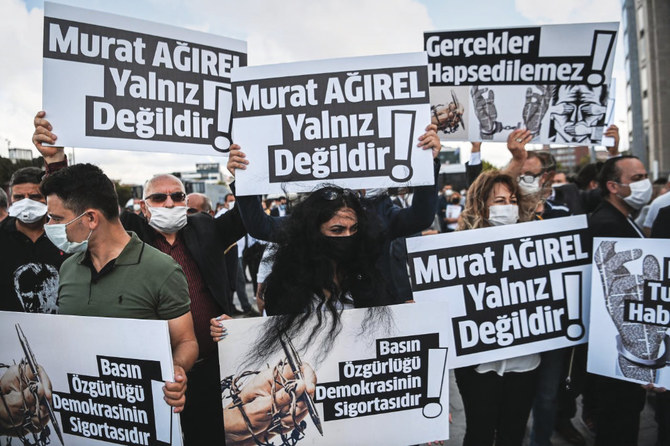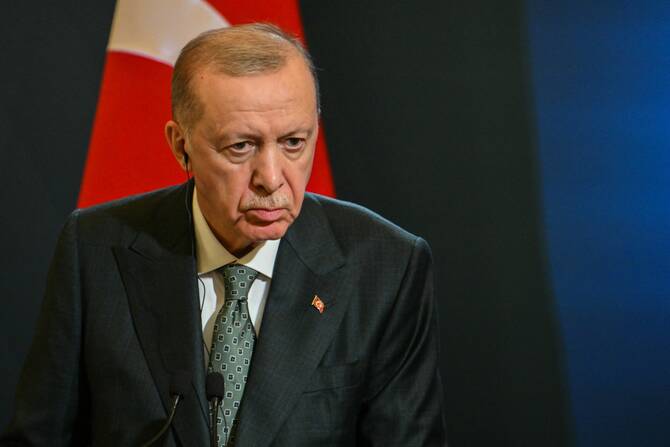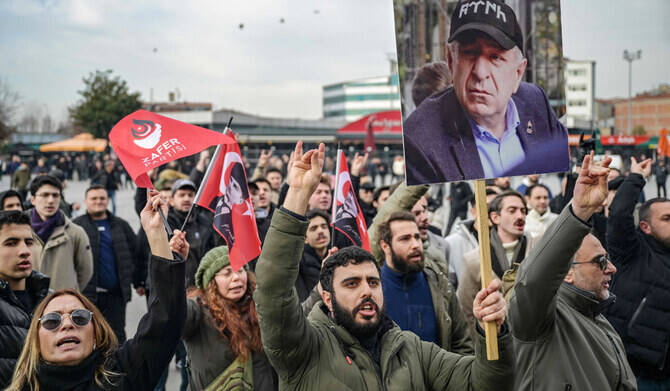ANKARA: After spending almost six months behind bars, orders for the release from prison of three Turkish journalists accused of disclosing national security secrets were issued on Wednesday.
Critical news site Oda TV’s editor-in-chief, Baris Pehlivan, reporter Hulya Kilinc and dissident Yenicag newspaper columnist Murat Agirel were behind bars for reporting on the death of a Turkish intelligence officer in Libya in February, although the agent’s name had been previously publicized in a speech by a lawmaker in the Turkish Parliament.
They were released with travel restrictions, with appeals for their sentences pending.
Pehlivan, who faced physical assault during his detention period, said during his testimony that the trial was an attempt to punish his journalistic work.
“No one should doubt this: We will keep writing for a just future, starting where we just left off,” he said.
However, not everything is rosy in the country’s media sector, where 20 journalists faced trials this week, with free speech increasingly under restriction and censorship in the face of eroding judicial independence from political interference.
Four other defendants who were tried over terror charges on the same day in Istanbul for their journalistic activities in the leftist pro-Kurdish Ozgur Gundem newspaper had their trial adjourned until Dec. 24, while the trial of two other journalists affiliated with the socialist Etkin News Agency (ETHA) was deferred to Dec. 22 as they did not attend the hearing.
A local journalist, Oktay Candemir, was briefly detained on Monday in the eastern province of Van for allegedly “defaming a dead person’s memory” under Turkish Penal Code Article 130 for a critical remark made on social media about a popular Ottoman-era television series shown by the state-run TRT channel. He was released on Wednesday on probation.
Reporters Sans Frontiers ranks Turkey 154 of 179 countries on its World Press Freedom Index, placing the country among the world’s leading jailer of journalists.
“The AKP government has long pushed media magnates into submission and has intimidated journalists who strive to keep their autonomy from political pressure,” Berk Esen, assistant professor of political science from Sabanci University, told Arab News.
“That is why the government has targeted the few independent voices left in the country, especially when they cover controversial stories that challenge the government propaganda,” he added.
According to Esen, in such cases, journalists are investigated and kept in prison for several months to break their resolve an send a message to their colleagues not to follow their path. Independent reporting on Turkey’s military campaigns in Libya and Syria as well as corruption cases in Turkey are generally off limits to journalists.
An Ankara court on Sept. 8 rejected the appeal against the custody of Oda TV Ankara News Editor Muyesser Yildiz, who was imprisoned in June over espionage charges. She was accused of revealing state secrets in two articles about Ankara’s military involvement in Libya.
“Obviously, the room available for independent journalists has shrunk further as the regime turned more authoritarian over the last few years. There are very few independent media venues left in the country as a result and most are owned by foreign media groups that still have room for independent journalism,” Esen said.
However, he added, these tactics had not completely stifled investigative reporting in the country.
“In contrast to post-communist regimes in Eastern Europe and Balkans, Turkish media has a relatively strong tradition of investigative and critical journalism that goes back decades. Those reporters who follow this tradition can still find room in online venues, international media, and the few independent newspapers left in the country,” Esen said.
At the same trial, another dissident journalist and Oda TV news director, Baris Terkoglu, was acquitted of disclosing information related to intelligence operations, and judicial control measures on him were lifted.
Terkoglu’s lawyer, Kazim Yigit Akalin, said it was a “bitter victory” after the unfair captivity he faced.
“From the very beginning, these journalists didn’t disclose anything secret. Even a parliamentarian gave a detailed description of the slain agent during his press briefing. Oda TV only covered the funeral after 13 days. Nobody could have explained why they remained behind bars over something that was already disclosed,” he told Arab News.
According to Akalin, the journalists were arrested because authorities wanted to silence Oda TV.
“Everything that Terkoglu and Pehlivan wrote in the past was disturbing the judiciary. They triggered the reflex of the judicial authorities about their critical journalism. They are brave boys; they don’t care anything but journalism. It explains everything, I assume,” he said.
Turkey’s Interior Minister Suleyman Soylu made a bitter press statement about Terkoglu on Thursday. “I am not the man of someone like you, the man of the other; I am the man of this nation. It is also clear who you are, with whom you are hiring and whom you are serving as a servant,” he said.






















